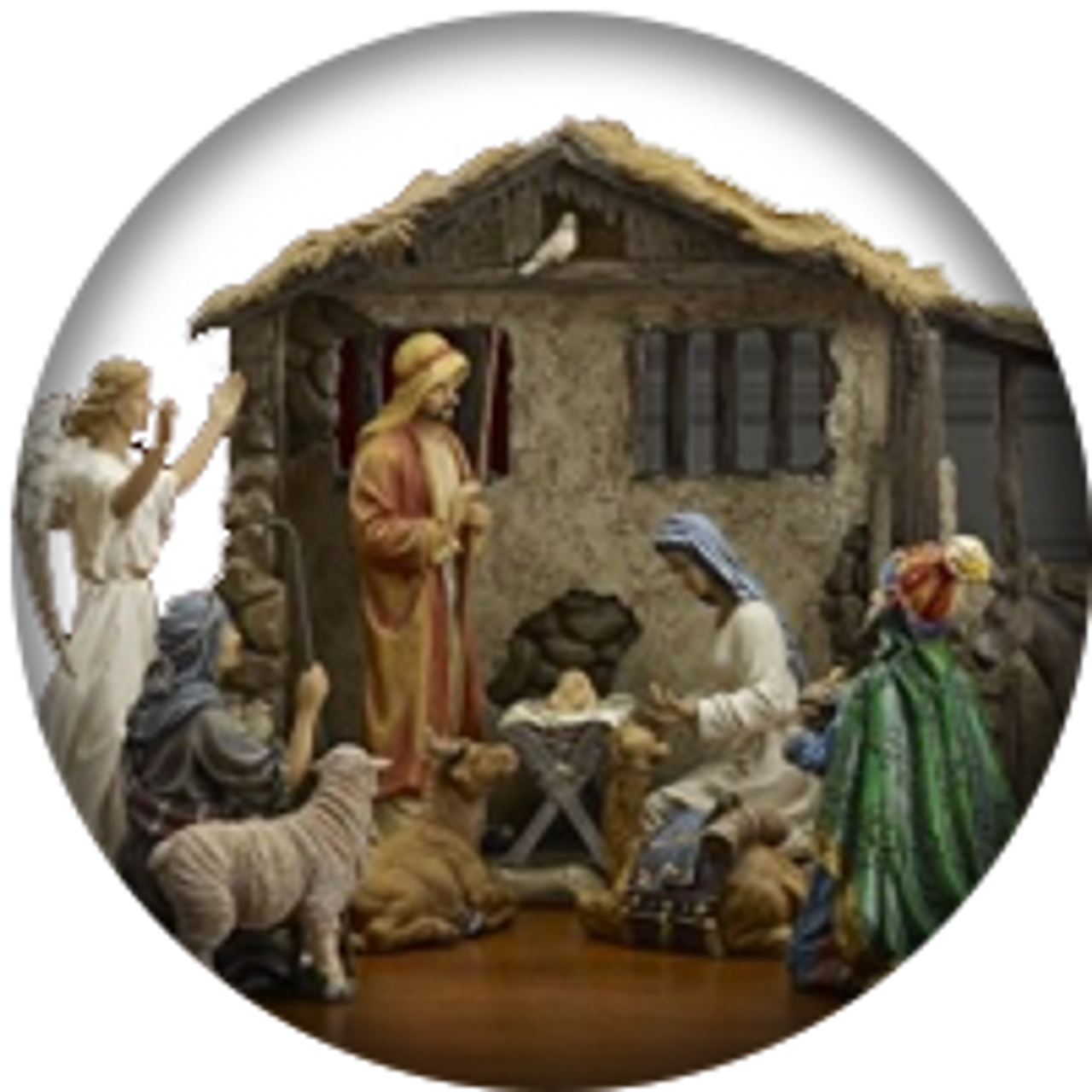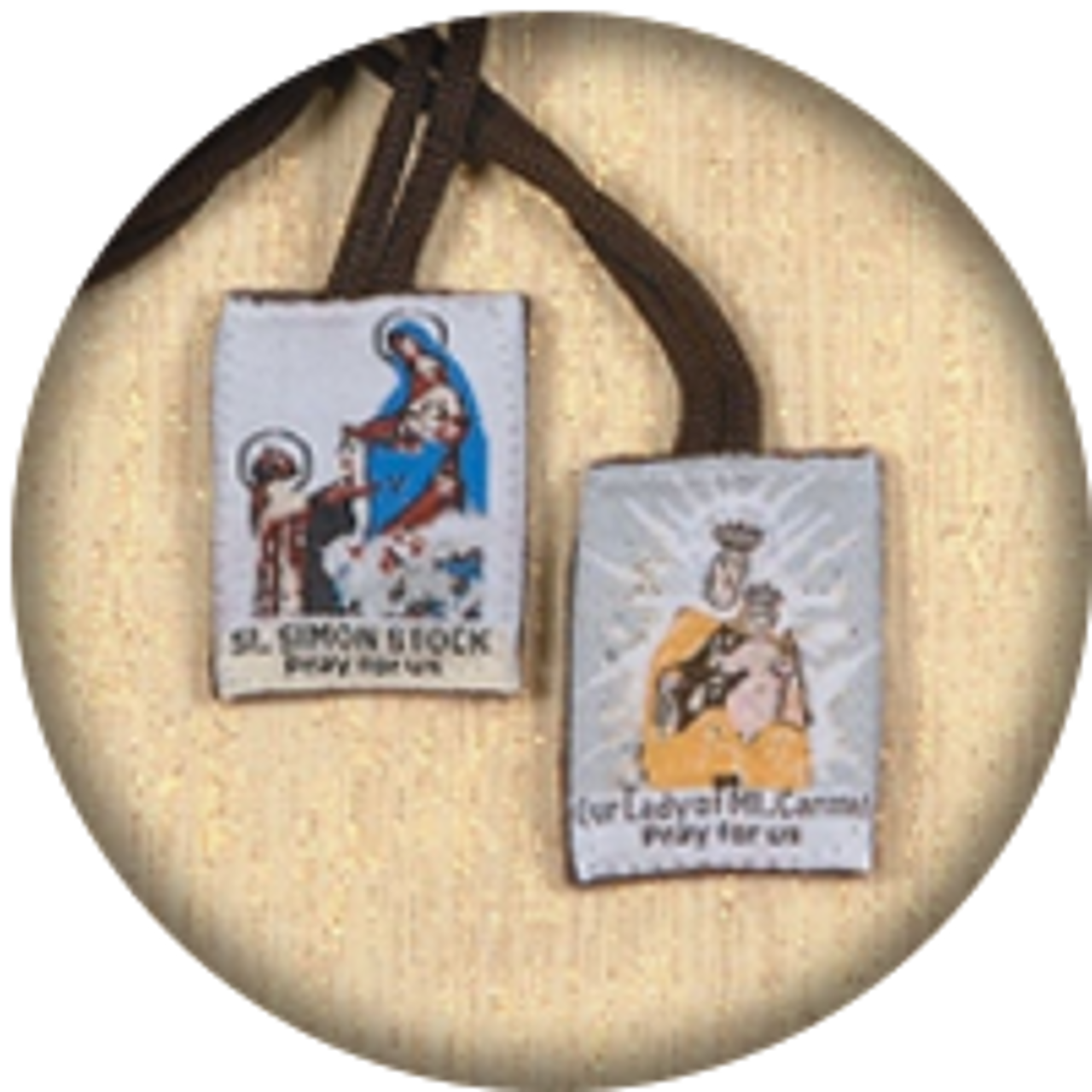PENTECOST: AN EVENTFUL DAY OR A NEW WAY OF LIFE? The Power of Pentecost series, Part II
Kathy Boh on 15th May 2020
The Power of Pentecost series, Part II:
AN EVENTFUL DAY OR A NEW WAY OF LIFE?
A look at the effects of Pentecost
and the coming of the Holy Spirit
THE POWER OF PENTECOST MANIFESTED
We celebrate Pentecost on Sunday, May 31, 2020.
In Part I of this series, THEN CAME PENTECOST:THE PROMISE, THE ROOTS AND WHAT HAPPENED, we ended with the description of the crowd listening to Peter speak after the Holy Spirit manifested His presence to the disciples at Pentecost.
Let’s start Part II with a repeat of one of the last paragraphs. It sets the scene. Peter had just addressed the group of pilgrims and Jerusalem natives who were moving about outside of the place where the disciples were gathered.
NEW BELIEVERS
Peter's speech had more impact than anyone could have imagined.
The crowd of unsuspecting listeners was immediately overwhelmed by his words. They were moved by the Holy Spirit, just as Peter himself was full of the Holy Spirit. God's power was operating in, through and around him. Listeners were touched deeply in their hearts and spirits.
“Now when they heard this, they were pierced to the heart, and said to Peter and the rest of the apostles, ‘Brethren, what shall we do?’ Peter said to them, ‘Repent, and each of you be baptized in the name of Jesus Christ for the forgiveness of your sins; and you will receive the gift of the Holy Spirit. For the promise is for you and your children and for all who are far off, as many as the Lord our God will call to Himself.’ And with many other words he solemnly testified and kept on exhorting them, saying, ‘Be saved from this perverse generation!’ So then, those who had received his word were baptized; and that day there were added about three thousand souls.” [Acts 2:37-41 NASB]
Imagine and observe the scene described. We have an unsuspecting crowd of visiting pilgrims and those native to Jerusalem who are responding to an unforeseen event. We have a previously frightened fisherman who gets up and addresses this vast throng of people— without the benefit of a microphone or an arena, a prepared speech or crowd handlers. He had no credentials to present to this dutifully religious crowd coming to Jerusalem for their solemn feast. And their religious leaders had just had this Jesus arrested, tortured and killed less than 2 months previous to this speech. Some, if not many, of these visitors would have been there for Passover— when Jesus was crucified and his followers dispersed into hiding. And we have a simple, impulsive fisherman (Peter) who (within a couple months of denying and abandoning his Rabbi and leader, Jesus) boldly wins over a vast crowd of strangers to that same Lord Jesus Christ. 1
COMMUNAL LIFE
What happened to this crowd—and to Peter, himself—was amazing enough. But how they responded with their lives, moving forward, is impressive. The Acts of the Apostles continues to describe this early Christian “mixed” gathering of newly-won followers of Jesus Christ. It picks up the story in the very next verse.
Acts 2:42 “They were continually devoting themselves to the apostles’ teaching and to fellowship, to the breaking of the bread and to prayer.”
This verse speaks volumes. These followers did—continually— four important things that contribute to a 24/7, solid Christian life. And they did it wholeheartedly and committedly. More follows in verse 43:
“Everyone kept feeling a sense of awe; and many wonders and signs were taking place through the apostles.”
Pentecost was not just a day. It became a way of life that greatly impacted their lives. The remarkable descent of the Holy Spirit upon those in that Upper Room—and then those won to faith in the Lord Jesus Christ by the power of the Holy Spirit through Peter’s bold sermon—became an on-going gathering of believers in Jerusalem. The apostles worked miracles as the days went on; they preached the “good news” with powerful effect; they changed their way of life together, working toward considering themselves a true and caring “community".
“And all those who had believed were together and had all things in common; and they began selling their property and possessions and were sharing them with all, as anyone might have need. Day by day continuing with one mind in the temple, and breaking bread from house to house, they were taking their meals together with gladness and sincerity of heart, praising God and having favor with all the people. And the Lord was adding to their number day by day those who were being saved.” [Acts 2:42-47, NASB]
The dedication, passion and commitment of these early believers encompassed and took priority over their whole lives. The power of the Holy Spirit enlivened the disciples in so many ways. Then His flowing power and manifestations became almost contagious—as prayers went up, and sharing and mutual generosity were observable, and enthusiasm for God and his purposes was undisguised. Love and care was made evident. Passion for God was seen and felt—not so much “emotionally” as “tangibly” in committed, life-changing ways.
There are those who say that the move of the Spirit was a “one-time thing” or limited to the “apostolic” age… or the like. But history tells another story. There have been moves of the Holy Spirit—and believers and followers who take the Father and Jesus at their word and receive the Holy Spirit’s help and power—throughout Christian history. There are innumerable stories and life witnesses even throughout the 20th century and the last decades describing lives devoted to the Lord and lived truly by the power of the Holy Spirit. (On the other hand, there are also those who use this concept as a “catch phrase” or an assumption to back up what is said or done… but not necessarily with the involvement or inspiration of the Holy Spirit. John warns us, "Beloved, do not believe every spirit, but test the spirits to see if they are from God..." [1 John4:1])
Some have said that the early Christian era encompassed simpler times and simpler people and they had greater need. Some presume that our sophisticated, advanced, technological times don’t require such heavenly assistance. One quick glance around us at the messes, the confusion, and the complications in life might result in a different conclusion. We may end up taking a serious look and give an earnest cry for help from the only One Who sees and knows all, and loves us anyway. He hears us, and desires to help us in spite of all that saddens Him that surrounds us, and all that we have failed to see, recognize, listen to, believe, obey and do.
The Bible shows no expiration date on God’s truth, His love and His desire to intervene and save—except as (scripturally speaking) End Time events bring things to a close. And God is quite alive and well, still confirming that His word is Truth and that He is Love and does not change. So we can believe what He says and let Him apply that truth even now.
Some saints have evidenced great power in the Holy Spirit and have done mighty deeds because of it, as they simply sought to follow God and see this world touched by His love and power and truth and life. (More on this through the rest of this series.)
Jesus said, “Ask, and it shall be given to you; seek, and you will find; knock and the door will be opened for you. For everyone who asks, receives; and the one who seeks, finds; and to the one who knocks, the door will be opened. Which one of you would hand his son a stone when he asks for a loaf of bread, or a snake when he asks for a fish? If you, then… know how to give good gifts to your children, how much more will your heavenly Father give good things to those who ask him.” [Mt 7:7-11]
He also said, quite pointedly: “If you then, who are wicked, know how to give good gifts to your children, how much more will the Father [Who is Love Himself (blogger comment)] give the Holy Spirit to those who ask him?” [Luke ll:13] The Father desires to give the Holy Spirit (with His gifts, blessings, empowerments, and fruit-in-formation) as we continue to seek Him.
DIFFERENT EFFECTS
So much can be said about the Holy Spirit and the role that the Spirit seeks to play in our daily lives. There are dozens of scriptures that shed light on His power, His comfort, His help and His presence—all of which are so available to those who ask [Luke 11:13]. In John 16: 12-15, Jesus explained that the Holy Spirit would “guide” us into “all truth”— truth that comes from the Father and the Son. Those of us who seek to receive His power to live the Christ-life can find guidance as we need it, and experience Him as Comforter—which was the name Jesus used for Him in the gospel of John, chapters 14, 15 and 16. 2 We see some of these readings in our liturgies leading up to Pentecost, including the 6th Sunday after Easter and the 7th Sunday, celebrating the Ascension of our Lord.
TEACH
Jesus told us of God the Father’s plan to send the Spirit to be with us after Jesus returned to heaven, and he spoke of the Holy Spirit to his disciples several times before He died.
“ …The Advocate, the Holy Spirit that the Father will send in my name—He will teach you everything and remind you of all I have told you.” [Jn. 14:26] “When the Advocate comes…the Spirit of truth…He will testify to me… [Jn. 15:26] …He will guide you to all truth…and will declare to you the things that are coming.” [Jn 16:13] 3
WITNESS
Until his final Ascension, Jesus continued to instruct, encourage, comfort, reassure and bless his apostles and disciples who were going through some troubling experiences with Jesus in just a short span of time. This sometimes confused (but eventually convinced) group of followers took it all in.
After the Holy Spirit descended upon them, things changed.
The frightened and sometimes hesitant disciples turned into a bold-and-enabled group of followers. They began to go into the world (as Jesus had commanded them)—courageously and empowered.
God the Father had arranged for the Spirit to come (after Jesus had ascended into heaven) to give us power to live life as Jesus’ disciple/ follower, and to share the “good news” and the truth of that new life that Jesus desires for all those who would call themselves “Christian”—“Christ followers”—whatever the denomination. Jesus literally “counted the cost” and released us from the chains of sin and death. Jesus was willing to die a horrible death for us, to pay the price for salvation (and every grace and blessing that comes from that, which is—actually—much, much more than we can imagine). 4
Jesus made several appearances after the resurrection. “…[A]s the eleven were at table, he appeared to them… [Jesus] said to them: ‘Go into the whole world and proclaim the gospel to every creature. Whoever believes and is baptized will be saved; whoever does not believe will be condemned.’” [Mark 16:14-16]
SIGNS OF BELIEVERS
Jesus continues in the next verse:
“’These signs will accompany those who believe: in my name they will drive out demons; they will speak new languages. They will pick up serpents with their hands, and if they drink any deadly thing, it will not harm them. They will lay hands on the sick and they will recover.’”
“So then the Lord Jesus, after he spoke to them, was taken up into heaven and took his seat at the right hand of God. But they went forth and preached everywhere, while the Lord worked with them and confirmed the word through accompanying signs.” [Mk 16:17-20]
Signs and wonders were produced by manifestations of the Holy Spirit’s power in the gifts that He gave—as the disciples asked and prayed and believed.
The Holy Spirit comes to empower us in many ways.
The Holy Spirit comes to bring to life and enliven the words and the heart, the spirit and the person of Jesus, Himself. Jesus told us that the Spirit would be a “Comforter” in the midst of the “tribulations” that Jesus said we would surely face while we were in this world; the Holy Spirit could enable us to manifest Jesus’ overcoming power and the peace that Jesus spoke of in regard to the troubles of this world. [Jn. 16:33] The Holy Spirit was sent to empower us to know and understand the truth; to pray with us and through us when we did not know how to pray; the power to win every battle against the enemy; and much more… 5
GIFTS AND FRUIT
First Corinthians chapter 12 speaks very explicitly about the spiritual gifts.
“There are different kinds of spiritual gifts, but the same Spirit; there are different forms of service, but the same Lord; there are different workings but the same God who produces all of them in everyone. To each individual, the manifestation is given for some benefit …wisdom …knowledge …faith …healing …mighty deeds …prophesy …discernment of spirits …tongues …interpretation … administration… assistance… [teaching]…
…But one and the same Spirit produces all of these [above mentioned gifts], distributing them individually to each person as he wishes.” [1Cor.12:4-11; 28]. “Strive earnestly for the greatest spiritual gifts. But I shall show you a still more excellent way…” [1Cor.12:31b] 6
We could speak about the “gifts of the Spirit” at great length. Although they are not so often discussed, God’s people need them for so many reasons.
Each is a Holy Spirit help to win others to the Lord… to truly and fully fulfill our callings from the Lord… to live in peace and in protection among others… to minister in all kinds of ways… to make the pivotal and personal decisions in life, and particularly any decision affecting anyone in or under our (and/ or the Lord’s) care… to pray fully and effectively…
Why would the gifts be necessary? Some brief answers: to receive many of His blessings… to be a vessel of healing and Holy Spirit power… to deal effectively and wisely with evil… to know how to establish purpose and plans for the future (that are in concert with living under God’s Lordship and in His kingdom)… to convey God’s truth in an understandable and mighty, effective way… to convey Jesus’ word and saving message in a way that deeply touches hearts as only God can… And many other things.
THE SPIRIT OF LOVE
Following these words (in 1 Cor. 12) we find the well-known 1 Corinthians 13 chapter on love. (You might recall these beautiful words from hearing them repeated… in marriage ceremonies or from Sunday readings: “Love is patient, love is kind…”) We have an eminently good description of love—the cornerstone, the core, the point of origin, and the surrounding atmosphere of every other “good” fruit. 7
God is Love… and love is the heart of it all, when it comes to living for and with the Lord. It is also foundational to all the other gifts and the other fruits, for they begin with seeking to love God and others.
So, let’s take a look at the Holy Spirit’s “fruit”. Good fruit—both in natural plant life and in the spiritual reality— first of all, grows from a seed planted in good soil. (We may recall Jesus' parables that spoke of the sower, the seed, and the soil.) It then follows a growth cycle that is often lengthy.
The “fruit” of the Holy Spirit is (to describe the natural fruit analogy) planted, germinated, grown, tended, blossomed and “fruited” by, with and through the loving action of the Holy Spirit, as we co-operate and seek His help and grace. Again, God continues to reach-and-keep-on-reaching to care for and empower those who turn and come to Him—choosing to walk with Him as Father, Redeemer, Lord, Comforter, Advocate (and the many other character-revealing names that God has in the Bible). 8
It is God's work in and through us that makes us both willing and able to do what pleases Him. He makes that clear in the following verse:
“For God is the one who, for his good purpose, works in you both to desire and to” [actually do the] “work”/ service. [Phil.2:13; see also Phil. 1:6; 1Cor.12:6; 15:10; 2Cor.3:5] God shows that He desires to give the grace and enabling for the character-fruit of the Holy Spirit (“love, joy, peace, patience, kindness, generosity, faithfulness, gentleness, and self-control” [Gal.5:22] ). We can turn to the Holy Spirit and continually seek and ask Him to grace, gift and form good fruit in us. 9
The "gift" of the Holy Spirit—while resembling "fruit"—can be analogous to handing someone an apple to eat. The apple is already developed when it is offered to us. We simply receive it. Likewise with spiritual gifts, we simply discern, receive and operate in them. (See the above 1Jn 4:1 reference.)
Growing the fruit is another matter altogether—it is a process. Holy Spirit fruit—formed as we "abide" in the Lord's hands—deeply becomes embedded in our character and grows as HIS new life becomes manifest in us. It lasts, as we choose to embrace it and cooperate with the formation process. We human beings left to our own devices are not able to do that. We can do a good imitation of it by our own strength and for our own purposes and by our own will, but the real fruit of the Holy Spirit must come through cooperation with God Himself. Jesus said that the life-giving fruit came through Him, the Vine, to us, the branches. Jesus said that we, the branches, could only bear fruit if we remained on the Vine. [see more below, Jn 15:4-5]
WE ARE CALLED AND WE ARE SENT
How much do we who call ourselves His children, His followers, realize:
that each of us is “chosen” and “appointed” to “bear fruit that
will remain”?
1Jn 15:16 says, "It was not you who chose me, but I who chose you and appointed you to bear fruit that will remain."
Frankly, that simple statement from Jesus presents some pathways that we may be quite unfamiliar with—but which are far from impossible. In fact, they are most enlivening and empowering —and possible with God’s help. And from a scriptural point of view, the “fruit of the Holy Spirit” was never meant to happen without God’s help.
The fruit that can “remain” must come from the “Vine” that is able and willing to produce long-term, everlasting fruit because the Vine, by His nature, is ever-True, always stable, ever-faithful, and holds the saving, gracing power we lack.
Jesus’ power and help now comes to us through the Holy Spirit. Jesus was eager for the Father to send the Holy Spirit because He knew that every believer throughout time would be able to have the “Spirit of Jesus” with them through even the most mundane moments in life. Even outside of a church building, the Holy Spirit would continue to dwell with them and within them.
There are many of us who are glad to go to church on Sunday, and perhaps take part in other services throughout the week… even daily. Some go to Bible studies, or prayer groups or daily mass, or worship, or other gatherings, prayer and fellowship opportunities. But what do we do to honor God, or receive His help in living the rest of the day, or week? That covers a lot of (24/7) hours and activities and challenges and issues and areas of life and living that we experience. Is God a part of those areas and places and times and challenges? Do we realize how much He wants to be an energizing and living help and comfort, provider and guide?
Jesus said, “You are the light of the world.” [Mt 5:14] He called Himself the “Light” [Jn 8:12]. So whose light are we shining? Above, we quoted Jesus as saying, ““It was not you who chose me, but I who chose you and appointed you to bear fruit that will remain.” [Jn. 15:16]
“Remain in me, as I remain in you. Just as a branch cannot bear fruit on its own unless it remains on the vine, so neither can you unless you remain in me… because without me you can do nothing.” [Jn. 15:4-5]
What does that “nothing” mean? The truth be told, many of us would say that we are “doing” a lot. How fruitful are our “doings”? That might be a risky question to ask ourselves.
We know that Jesus always tells the truth. It is not in Him or His nature to do otherwise… for He (intrinsically, totally) IS the Way, the Truth, and the Life. So… if He says [implying that we are bearing fruit for his kingdom, and for every plan and purpose He has for us as His followers] that we can do “nothing” without Him, what are we doing… without Him? Who exactly are we pleasing? How much are we living as His “followers”?
If we are truly ‘doing, doing, doing’… ‘busy, busy, busy’… why/ who/ and what are we “following”? What “fruit” is the “Vine” bearing in us? Are we still a “connected” branch? (Verse 6 tells us a very undesirable end of branches that do not remain in him. “Anyone who does not remain in me will be thrown out like a branch and wither; people will gather them and throw them into a fire and they will be burned.”) Verse 8-9 tells us, “By this is my Father glorified, that you bear much fruit and become my disciples… Remain in my love.”
It is as we “remain IN [His] love" that we are in the perfect climate for developing good “fruit”. It's the perfect 'fathering' love of our Father God and the perfect love of the 'husband'-ing (Bridegroom) Jesus and the perfect powerful love of the Holy Spirit working in us that succeeds in forming good fruit in us—to better enable us to love God and love others in very specific ways. This means that we don’t have to stop or quit when we reach the “I can’t” point. We can move on to the “God help me!” place where St. Paul said, “I can do all things through Christ who strengthens me.”
Verse 12 [of John chapter 15] tells us: “This is my commandment: love one another as I love you.” How else could we truly do this as He commands without the (Holy) Spirit of Truth and power and love—the manifestation of Christ, the Anointed One—living in us and actively working through us?
Jesus also said, “My yoke is easy and my burden [is] light…” [Mt. 11:30] His Good-Shepherd love sought to help (tend, care for, and even carry) His flock in every way possible. He criticized the Pharisees (whose spirit and practice are yet alive and well today) for “they tie up heavy burdens [hard to carry] and lay them on [other] people’s shoulders, but they will not lift a finger to move them… For they preach but they do not practice.” [Mt. 23:4, 3b]
Jesus knew this is what the people were accustomed to experiencing and hearing from many other religious leaders. He wanted them to see and know the difference He could make. So, He said, “Come to me, all you who labor and are burdened, and I will give you rest... learn from me, for I am meek and humble of heart, and you will find rest for yourselves.” [Mt. 11:28-29]
We can make sense of these profound yet straightforward concepts as we begin to—simply—put it together (after we first, really, count His word as true.). However, we also need to “count the cost” of accepting the truth. Jesus said, clearly. that He was and is the "Truth"... as are His word[s] to us. He is the living Word. “In the beginning was the Word, and the Word was with God, and the Word was God.” [Jn 1:1] His plan is to let that truth shape our lives (thoughts, actions, words, attitudes, relationships, agendas, practices, plans, etc.).
Too often we spend time judging and criticizing His truth/ His word, or attempt to explain away what we don’t like or care to receive. We choose to prefer our own thoughts, ideas, political correctness, feelings, desires, and will, plan and ways. We sometimes treat the bible like a smorgasbord cafeteria, to pick and choose what satisfies us or appeals, and reject what we don’t like. Who, then is “God”? What are we putting before Him/ above Him/ instead of Him? How often is that just simply... ourselves?
These are the pieces that we need to put together: Jesus calls us to bear good fruit. He calls us to “follow” Him in many ways. Above we mentioned those five signs “accompany[ing] those who believe” in Jesus that, for the most part, we ignore or are not doing. They may seem “out of our league”/ out of our comfort zone/ undesirable/ too difficult/ not on our minds/ far from our agendas or plans— or all of the above.
But Jesus humbly wants to help us carry the load. He wants us to LET Him work in and through us. It matters not only for ourselves, but for those who do not yet know Him—and His salvation, love, grace and power. After all, Jesus called His followers to go into the whole world to make disciples. Even those of us who live in what we see as a "small world" can help shed His light.
The Holy Spirit is the multiplied help available to every believer/ follower/ disciple. Jesus desired the coming of the Holy Spirit for his followers because He wanted to see them—and “them” is now “us”—receive individual, ever-available assistance, even as they went (or as we go) all different directions fulfilling His call. Jesus specifically told them that he had to go to the Father for the Holy Spirit to come [Jn. 16:7], but He knew and said that it would be even better for them if He would go. [Jn. 16:28]. Any follower, at any time—even everyone at the same time, in whatever way needed—could (and can) be helped and empowered by the Holy Spirit. It was time that the disciples split up and go into the whole world. And those followers and disciples… are now “us”.
There's more to come!
In upcoming parts throughout this series we cover the Holy Spirit in Confirmation. We will continue to look at the Holy Spirit's power manifested and the difference that Pentecost makes. We will cover more on effects, repercussions, gifts and fruit. We will examine being called, sent, and going beyond human limits.
Later, we will explore walking with the Holy Spirit, how to respond, letting Him speak, God’s glory, the Holy Spirit now, the days ahead, and a Pentecost way of life.
Before we finish, we will look at some life-giving perspectives and how the Holy Spirit can bring scripture to life.
This series is based on our blog articles published on the Holy Spirit and Pentecost and Confirmation in previous years by Kathy Boh on this blog site at: trinitychurchsupply.com/blog
FOOTNOTES
(Please note that any part of a scripture quote in bold type is put there by this blog author.)
1 THE POWER OF PENTECOST: A three-part series, Part I, PENTECOST: ROOTS,PRICE, PROMISE AND WHAT HAPPENED, by Kathy Boh, June 7, 2017.
2 CONFIRMATION AND BEYOND: LIFE IN AND WITH THE HOLY SPIRIT, posted by Kathy Boh on March 2, 2017.
3 Ibid.
4 Ibid, with some changes.
5 Ibid.
6 Ibid.
7 Ibid.
8 Ibid.
9 Ibid.










